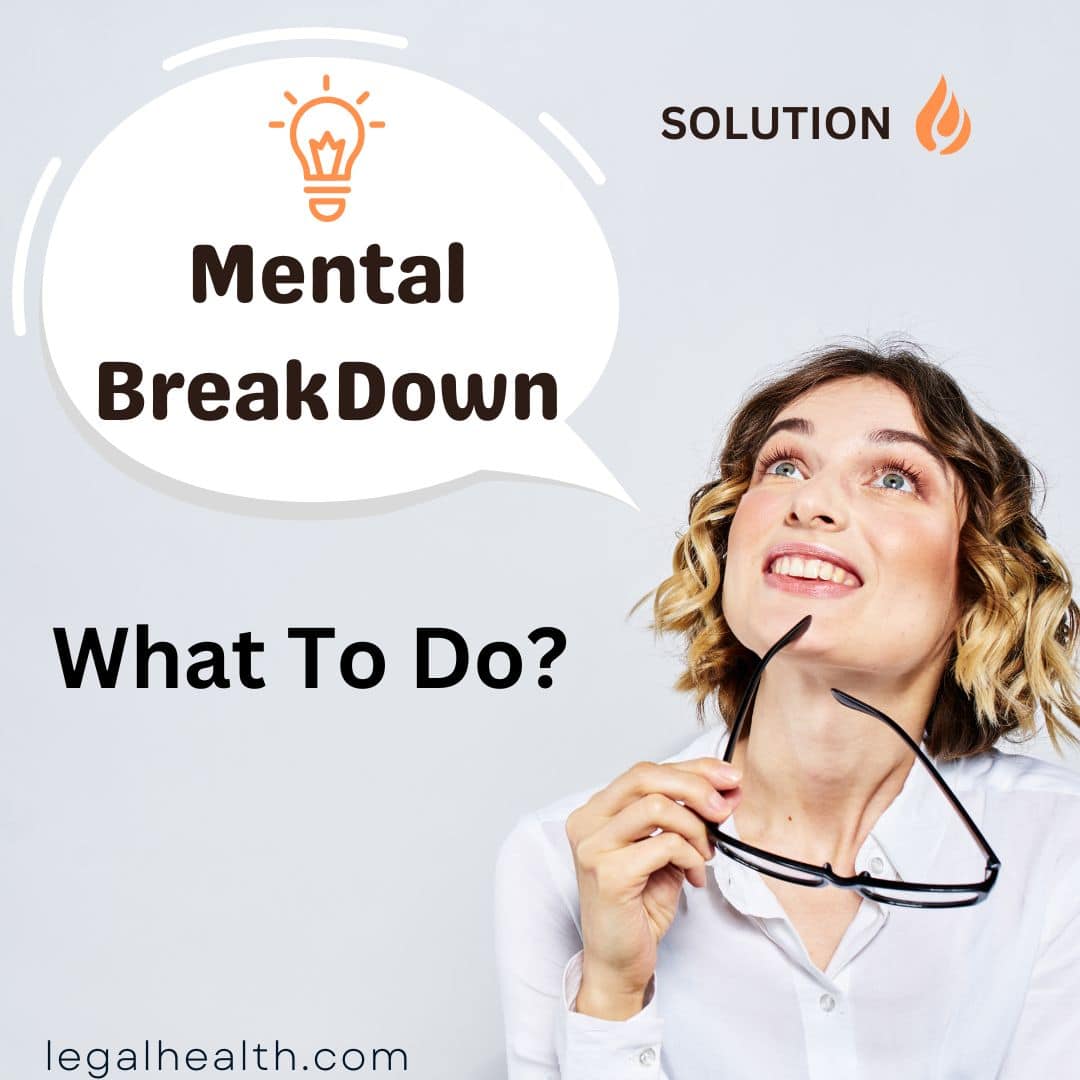Mental BreakDown:
Dealing with psychotic symptoms, also known as nervous breakdowns, A comprehensive approach is required to address the immediate crisis and improve long-term mental health. Here is a plan for managing and recovering from a mental breakdown:
Urgent Action
1- Recognize signals:
- Severe anxiety, panic attack, or severe depression
- Unable to function in daily life
- Physical symptoms such as insomnia, headaches, or stomach problems
- Emotional outburst, severe mood swings, or withdrawal from social interaction
2- Get Help Now:
- Contact a mental health professional, such as a therapist or counselor.
- In an emergency, call 911 (or your local emergency number) or go to the nearest emergency room.
- Use an emergency hotline such as the National Suicide Prevention Lifeline (1-800-273-8255) or text “HELLO” to 741741 for the Crisis Text Line.
Short-Term Strategy
1- Create a Safe Environment:
- Find a quiet, comfortable place to rest.
- Eliminate any stress or stimulation that may arise from the environment in front of you.
2- Contact support:
- Talk to a trusted friend or family member about what you are going through.
- Ask for help with daily tasks to relieve pressure.
3- Practice Grounding Techniques:
Deep Breathing Exercise: Take a deep breath through your nose and hold for a moment. and exhale slowly through the mouth.
Mindfulness or meditation: Focusing your attention on the present moment. Observe your own thoughts without judgment.
4- Rest and recovery:
- Take time off from work or responsibilities to focus on your mental health.
- Make sure you get enough sleep and rest.
Long-Term Strategy
1- Therapy And Counseling:
- Attend regular meetings with a licensed therapist or counselor.
- Explore different types of therapy, such as cognitive-behavioral therapy (CBT), that can help change negative thinking patterns.
2- Drug:
- Consult a psychiatrist to see if medication would be helpful.
- Follow the prescribed treatment plan and attend follow-up appointments.
3- Healthy Lifestyle Choices:
- Maintain a balanced diet rich in fruits and vegetables. lean protein and whole grains
- Engage in regular physical activities, such as walking, yoga, or swimming.
- Avoid excessive alcohol, drugs, and caffeine.
4- Stress Management Techniques:
- Identify and deal with the sources of stress in your life.
- Practice relaxation techniques such as yoga, tai chi, or progressive muscle relaxation.
- Set realistic goals and prioritize tasks to effectively manage your workload and responsibilities.
5- Create a support network:
- Connect with a support group or community where you can share your experiences and receive support from others.
- Develop good relationships with friends and family who can provide emotional support.
6- Personal care routine:
- Participate in activities that you enjoy and that bring you peace.
- Create a daily routine that includes time for rest and self-assessment.
7- Improve yourself:
- Learn about mental health to better understand your condition and how to manage it.
- Read books and attend workshops. Or take an online course about mental health.
Protective Measures
1- Routine inspection:
- Schedule regular visits with your healthcare provider to monitor your mental and physical health.
- Solve problems that occur early on, before they escalate.
2- Set limits:
- Learn to say no and create healthy boundaries to avoid being overwhelmed.
- Make sure you make time for rest and relaxation in your schedule.
3- Improve coping skills:
- Work with a therapist to develop effective coping strategies to deal with stress and emotional problems.
- Practice these skills regularly to increase your endurance.
Personal Care For Caregivers
1- Look after yourself:
- Helping someone suffering from a mental illness can be difficult. Don’t forget to take care of your own mental health as well.
- Seek help for yourself through therapy. support group or someone you can trust
2- Set limits:
- Be clear about your boundaries, and never neglect your own needs while helping others.
By combining these short-term and long-term strategies, you can manage and recover from psychosis. build flexibility and effectively improve overall mental health.
